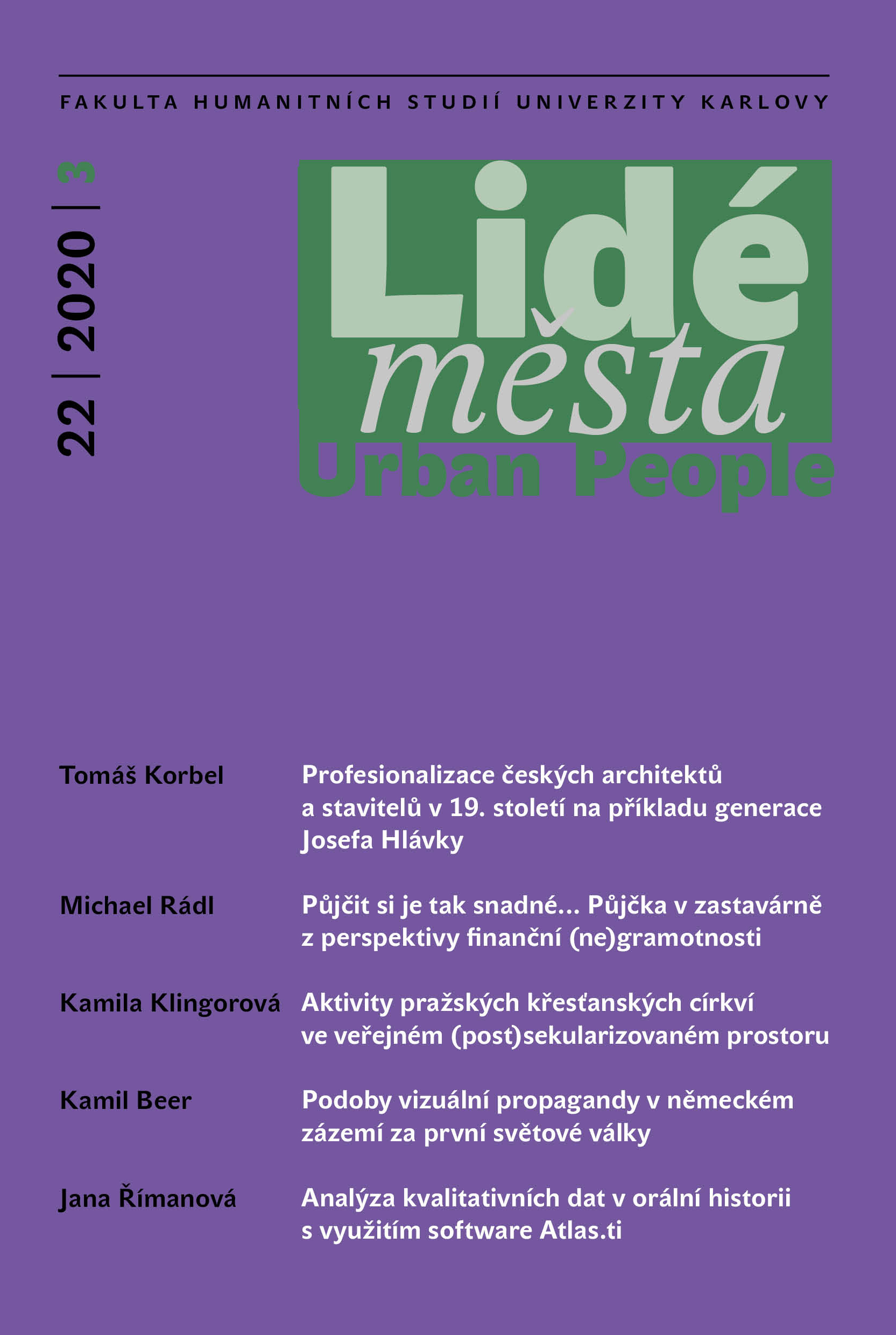Profesionalizace českých architektů a stavitelů v 19. století na příkladu generace Josefa Hlávky
Professionalisation of Bohemian Architects and Builders in the 19th Century on the Example of Josef Hlávka’s Generation
Author(s): Tomáš KorbelSubject(s): Politics / Political Sciences, History, Social Sciences
Published by: Univerzita Karlova v Praze - Fakulta humanitních studií
Keywords: Bohemian elites; professionalisation; modernisation; architects and builders; 19th century; civil engineering education, legal system and administration; construction business
Summary/Abstract: This article aims to contribute to the research of the Bohemian elites of the 19th century, and to treat the hitherto neglected topic of the professional rise of Czech and German Bohemian architects and builders in the 19th century. At this time, because of the state reforms of the educational, administrative, and legal systems, the professional perception and social status of this class also changed. In the introduction, architects and builders are included in the process of the modernisation of the construction industry and are defined on the basis of their relationship to art, engineering, and business. Subsequently, architects and builders are defined as a socioprofessional group that has reached a certain degree of professionalism during this period. Against the background of the formation of a modern system of building and architectural education, law, and administration, individual features of professionalisation are scrutinised by discussing specific cases of architects and builders using the method of the collective biography of elites for researching their social background, education, construction practice, and other public activities. Thus, two levels intersect in the article – the general and the personal. In general, we track the interconnection of civil engineering education, the legal system, and administration throughout the century. The factors of this transformation are examined on the personal examples of four members of the generation of Josef Hlávka (Josef Korel, Josef Niklas, Adolf Siegmund, Karl Schlimp), who were the first graduates of the newly reformed educational system and who entered active professional life during the economic and construction boom of the 1860s. Based on a comparison of their career paths and the degree of their achieved social status, a typology of three different levels of professional careers (regional, provincial, and state architect and builder) is then conceived. At the same time, other related phenomena are observed in the individual cases.
Journal: Lidé města
- Issue Year: 22/2020
- Issue No: 3
- Page Range: 295-322
- Page Count: 28
- Language: Czech

